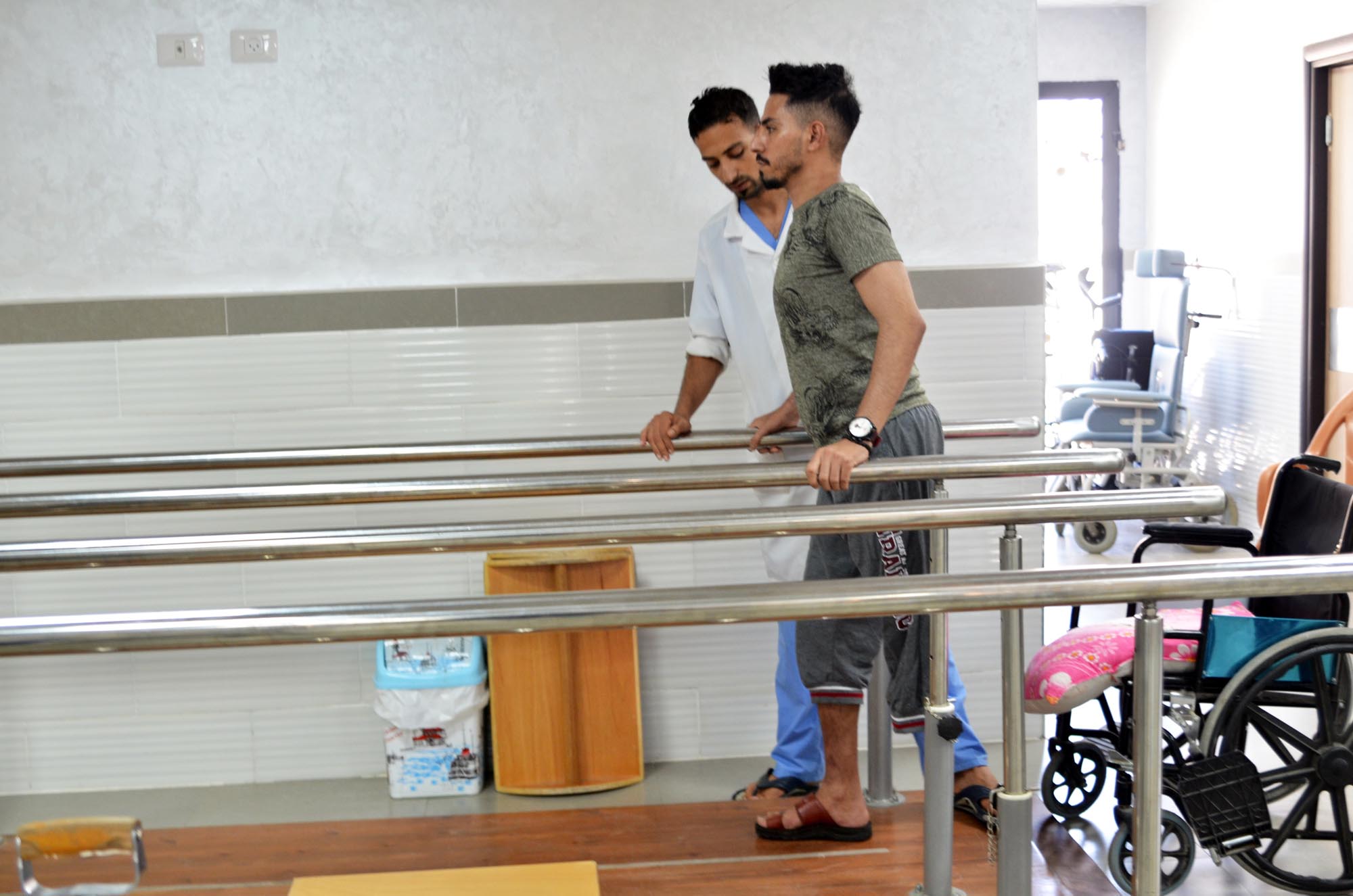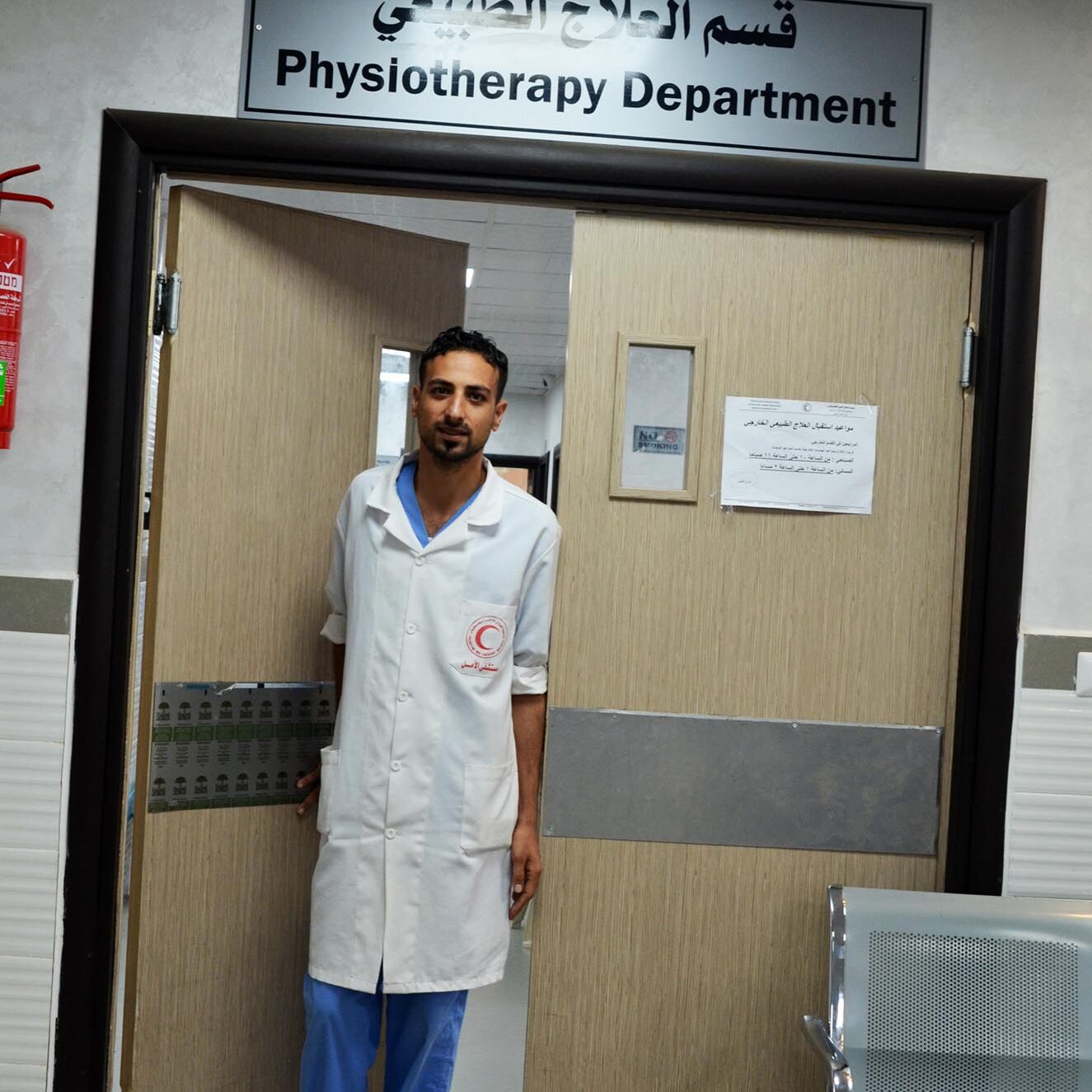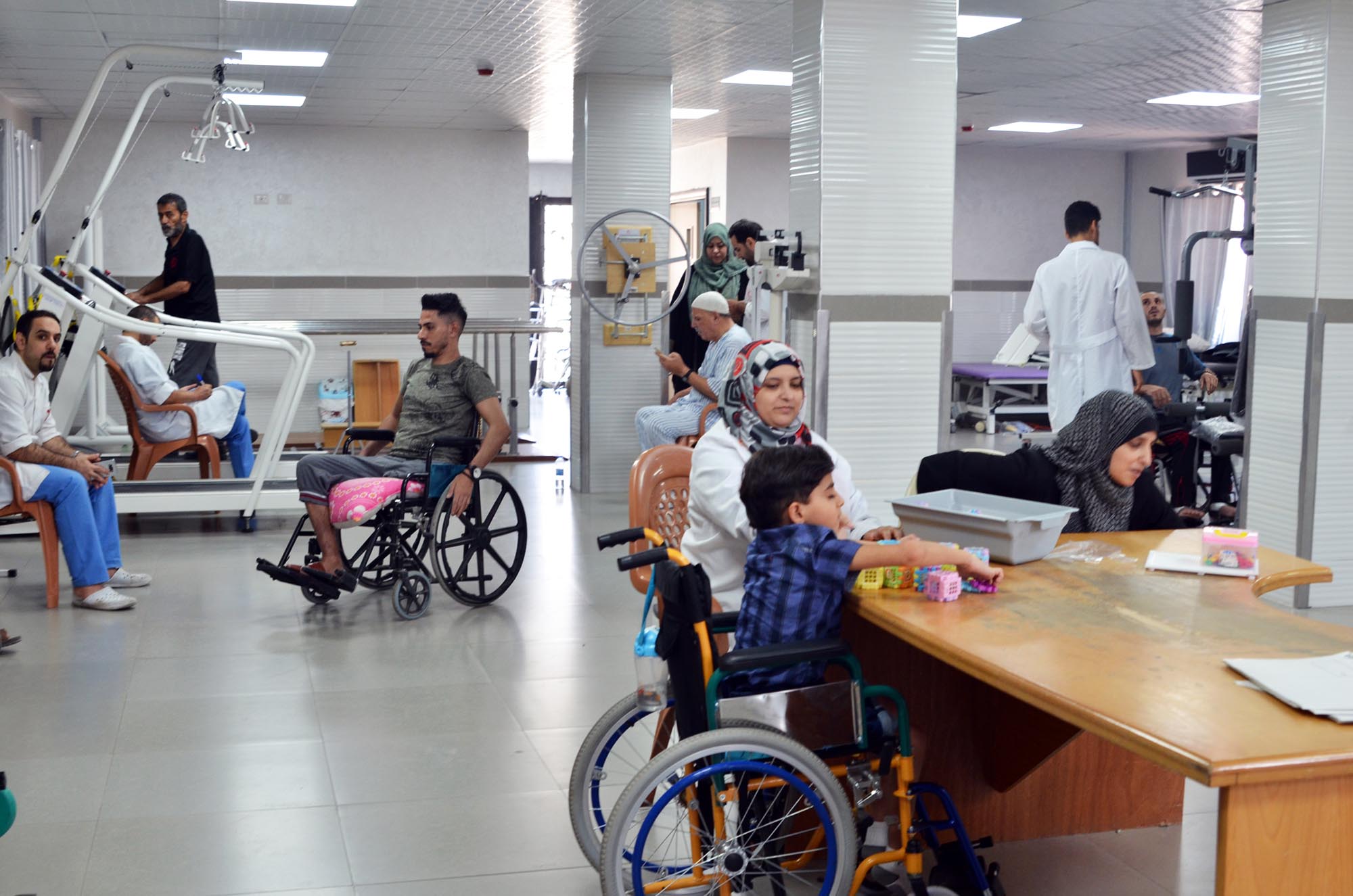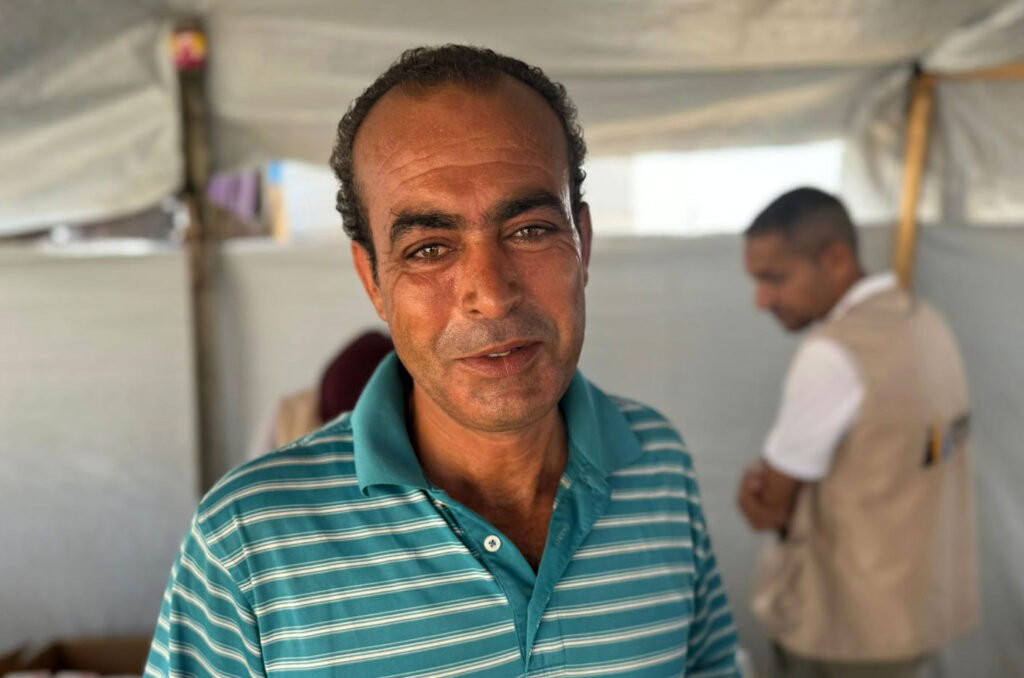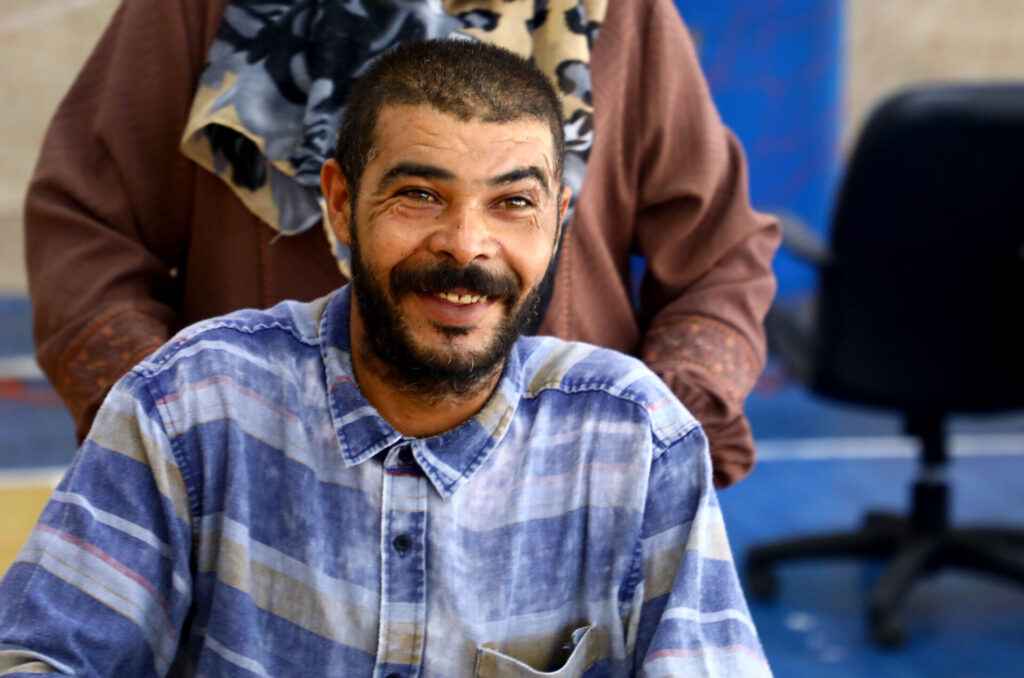COMMUNITY
As Gaza Health Situation Worsens, Doctors Respond with Limited Resources
Jul, 2018
“With limited resources, we offer what we can to help people put their lives back together. Recovery takes time, patience and hard work. Unfortunately, medicines and aid devices are urgently needed for our patients. The medical shortages in Gaza are severe.” - Dr. Bahaa
Inside the physiotherapy room, physician Dr. Bahaa is training 26-year-old Hossam on exercises to help him avoid complications in his long-term recovery. Hossam sustained a gunshot wound in his hip during demonstrations and had to have his leg amputated. According to Hossam, “I went to the residency hospital. It was a wrong decision. I needed to go to the ICU, but then I fell unconscious. When I woke up I found out that they had to amputate my lower right limb.” Because of his injuries, he missed his graduation ceremony and is unsure about the future of his education with the situation is Gaza being so dire.
According to Dr. Bahaa, “going forward, Hossam will need further bone reconstruction and an artificial limb. Unfortunately, these types of operations and medical devices can only be obtained outside of Gaza, and only if a patient is lucky enough to be allowed to leave Gaza.” With the help of Al Amal’s rehabilitation team, Hossam has made some progress in his recovery. “We have helped him increase his motion and strengthen his muscles through balance exercises,” says Dr. Bahaa.
“With limited resources, we offer what we can to help people put their lives back together. Recovery takes time, patience and hard work. Unfortunately, medicines and aid devices are urgently needed for our patients. The medical shortages in Gaza are severe. It’s unfortunate that we have to give grown-up wheelchairs to children when they don't even fit,” he concluded.
Limited Medical Resources in Gaza
Thousands of people have been injured since the start of the demonstrations last March on the Gaza border with Israel. Several of those injured needed immediate surgery after sustaining gunshot wounds on different parts of their body. Dr. Tareq Hafeni, head of the Physiotherapy Department at Al Amal Hospital described the dire situation his patients find themselves in, “Most of my patients are still going through a denial stage. It aches my heart when they wake up from a coma only to realize that they can't afford medicine or aid devices like wheelchairs and crutches.” Many of Dr. Hafeni’s patients have been left wheelchair–bound and will need ongoing care for the rest of their lives.
Al Amal Hospital has had to treat a large number of wounded in a very short period of time over the last few months. “My patients need rehabilitation and psycho-social support. They also need mobility devices such as elbow sprints, crutches, wheelchairs and walkers,” according to Dr. Hafeni. It has been particularly difficult for the hospital to respond to these challenges with Gaza’s health system already weakened by shortages and restrictions on medical supplies.
“Dealing with such an emergency, including surgical operations and post-operative care, is a real challenge. We’ve been pushed beyond our limits, we only have 55 beds and they are all occupied. We have had to prioritize daily care and have discharged patients to give beds to people who have just been injured in the demonstrations.” - Dr. Hafeni
Al Amal Hospital receives medicine from Anera through in-kind medical donations provided by different donors and supporters. The hospital is a branch of the Palestine Red Crescent Society, which has been a partner with Anera for 16 years. Under Anera’s USAID funded Palestinian Community Infrastructure and Development (PCID) program, facilities have been remodeled and improved to accommodate people with physical disabilities in Gaza.

